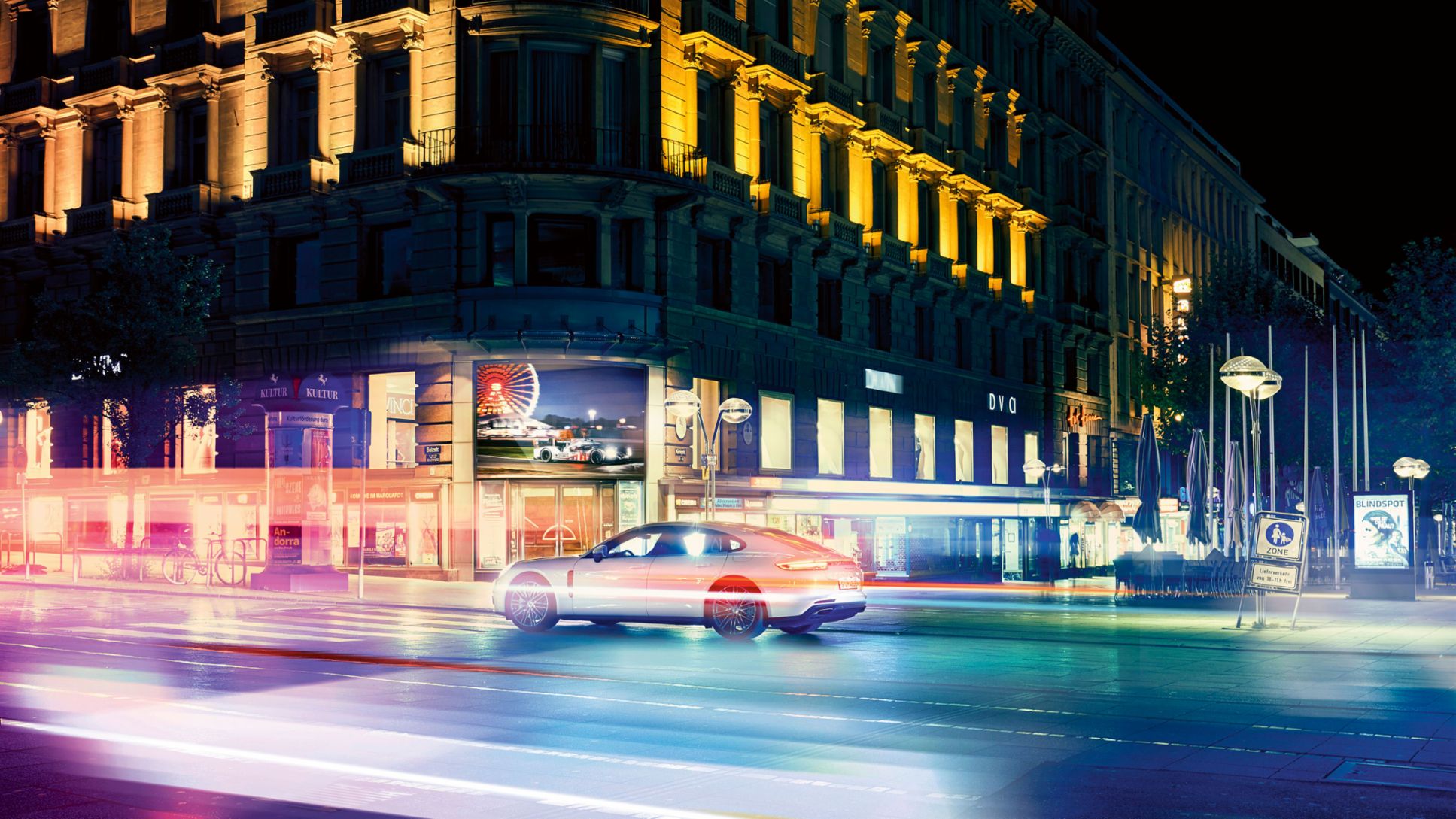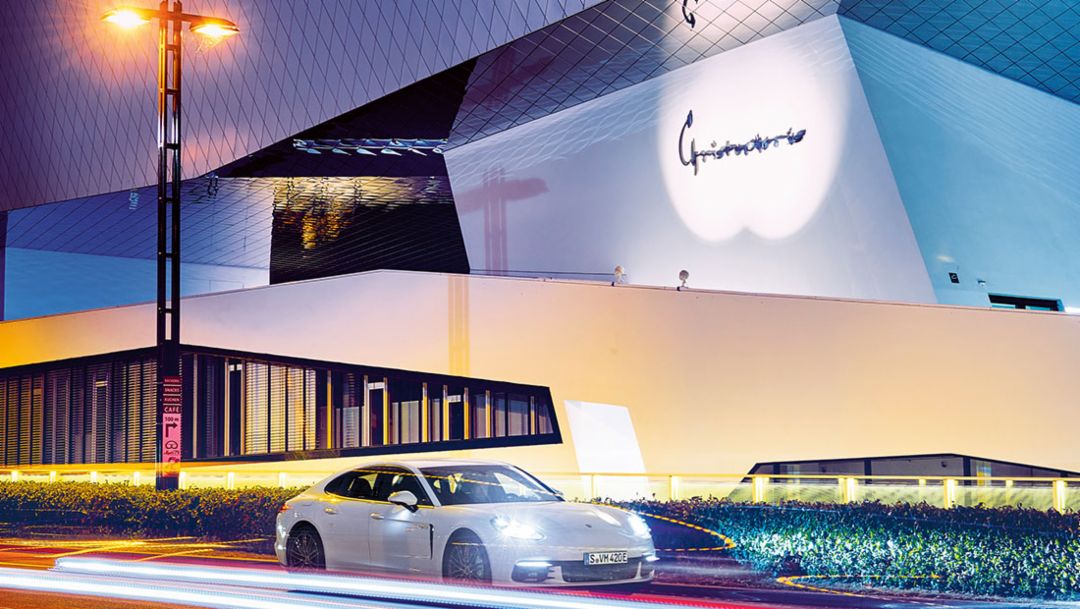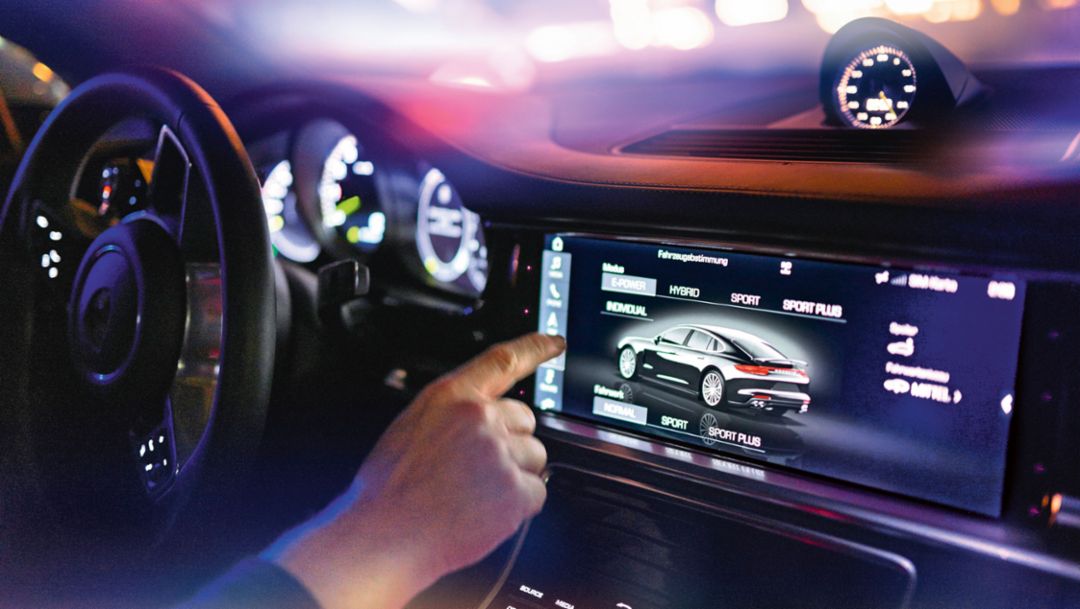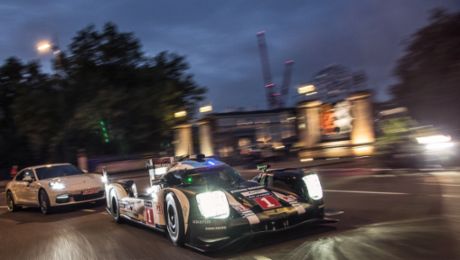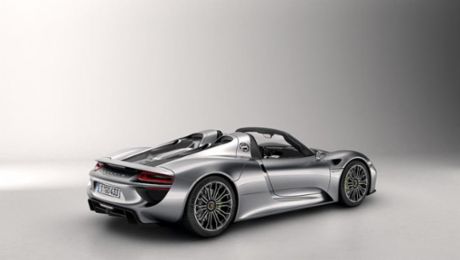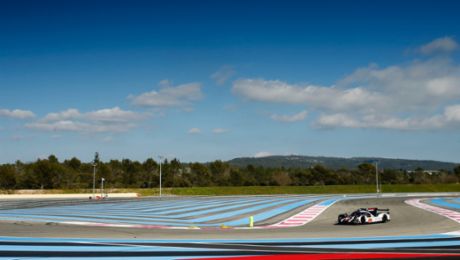By night, the city is another world. Whereas during the day a caravan of automobiles inches slowly forward, the Porsche Panamera now zips along against a backdrop of houses and lights. As the white sports sedan exits the autobahn, the sun sets behind the peaks of the Swabian Mountains, a bright red orb punctuating the sky. Green brake calipers indicate that this model is a plug-in hybrid. Onward to the city. The sound of the Panamera’s calm mastery of the autobahn reverberates.
Stuttgart is a place of contrasts. Many of the businesses based there, innovation incubators of the automotive industry, are global players, yet there are spots in this thriving city where one could mistake it for a charming little town. And then there’s the special character of the Stuttgart residents themselves—stereotypes with which the Swabians are all too familiar. Inveterate technocrats, the description goes, thrifty and enamored of rules. Yet there’s another side to the famed Swabian nature: you’d be hard pressed to find a group of people more open to the world, better traveled, more versatile, or who pursue innovation with such passion.
30 miles. On electricity alone.
As the number in its name suggests, the Panamera 4 E-Hybrid powers all four wheels. In addition to the Panamera models’ conventional driving modes—Sport and Sport Plus—four additional modes are available to support the car’s forward motion: E-Power, E-Charge, Hybrid Auto, and E-Hold. In the case of the latter, the driver can choose to maintain the current charge state for purely electric driving at a later time. When the battery is fully charged, the Porsche can cover a distance of up to 30 miles at 87 mph. On electricity alone.
In Hybrid Auto mode, the vehicle independently switches between the drive units of the 2.9-liter V6 bi-turbo engine with 246 kW (330 hp, fuel consumption combined 2.5 l/100 km; CO2 emissions 56 g/km; electricity consumption (combined) 15.9 kWh/100 km) and the 101 kW (136 hp) electric motor. The driver allows the car to choose. With a tap of the brake pedal, the Panamera’s brake system decides—unnoticed by the driver—whether the car can be stopped by using recuperation. If the resistance of the electric motor—now pressed into service as a generator—is insufficient, the large, high-performance brake discs are engaged.
Designed for pure driving pleasure
Wine grapes grow on the steep slopes around the Stuttgart basin. In the evening hours, the warm air from the valley rises up the hills. As dusk descends, the Panamera takes the corners with cool precision. And while its LED headlights project bright beams of light onto the asphalt, a satisfied smile flashes across the face of the driver. The V6 bi-turbo was untested by the pace of travel on the autobahn. In E-Charge mode, it was able to recharge the electric power expended by the 14.1-kWh battery in short bursts of electrically boosted acceleration. All of this happens while the Panamera treats its occupants to long-distance comfort. During braking and downhill stretches, the laws of physics pitch in: inertia and gravity are exploited and stored as new electric energy.
The Panamera passes some longboarders skating on the empty sidewalks, illuminated by the streetlights. On the long, sweeping arterial thoroughfare, the driver switches into Sport mode—still designed for pure driving pleasure. Porsche has gained a wealth of valuable hybrid experience at the Weissach Development Center with its Le Mans–winning vehicle, the 919 Hybrid. This technical expertise has flowed into the development of the Panamera. If the driver were on the Nürburgring, he would now activate Sport Plus mode, which gives the V6 bi-turbo a raw engine sound, and think of the record-breaking drive of the Panamera Turbo, which laid down a lap time of 7 minutes and 38 seconds on the legendary Nordschleife, the north loop of the Nürburgring. But it’s the dead of night in Stuttgart, the racetrack is 205 miles away, and the Panamera has no use for a top speed of 172 mph. The driver isnonetheless tempted by what the 12.3-inch touch screen is offering: the tantalizing power of the boost assistant, which is already available in the Porsche 918 Spyder super sports car and which ensures that the electric motor can run parallel to the combustion engine. Ultimately, he taps the mode switch once again: Hybrid Auto. Confidently activating the softer skills with the certainty that this sedan can become a sports car at any moment.
Interplay of the combustion engine and the electric moto
Almost imperceptibly, the V6 springs into action, charging up the hill before easing up and leaving the subsequent straightaway to the 295 lb.-ft. (400 Nm) of the electric motor. The hybrid assistant in the cockpit uses visual cues to aid in the dosing of electric drive power. It’s almost a pity, really, that the driver notices so little of this figurative yin and yang, the subtle interplay of the combustion engine and the electric motor. While the precise choreography plays out beneath the hood, the Panamera passes the renowned Staatstheater Stuttgart.
If the driver switches over to E-Power mode, which is always activated once the engine is started, the 2.9-liter V6 bi-turbo goes quiet. The car glides through the darkness almost without a sound. At Schlossplatz, night owls follow the whisper-quiet sedan with rapt gazes; minutes later, the Panamera has traversed the Stuttgart basin. In the rearview mirror, the city’s trademark Stuttgart TV Tower, a 712-foot colossus, slowly fades from view. Ahead lies the mecca of sports-car drivers: Zuffenhausen. In the reflective facade of the Porsche Museum, the silhouette of the car has an almost artistic quality. And technologically, it is a work of art: a masterpiece that represents the history housed in the museum driving into the future. A few feet ahead, a gate opens. Plant 1 of the main Porsche production site. Soon the Panamera 4 E-Hybrid will no longer grace the roads of Stuttgart alone, but those of the whole world.
Info
Text first published in the Porsche customer magazine Christophorus, No. 379
Text by Til Daun // Photos: Frederik Dulay-Winkler
Consumption data
Panamera 4 E-Hybrid: Fuel consumption combined 2.5 l/100 km; CO2 emissions 56 g/km; electricity consumption (combined) 15.9 kWh/100 km
918 Spyder: Fuel consumption combined 3.1 – 3.0 l/100 km; CO2 emissions 72 – 70 g/km; electricity consumption (combined) 12.7 kWh/100 km
Panamera Turbo: Fuel consumption combined 9.4 – 9.3 l/100 km; CO2-emissions 214 – 212 g/km
